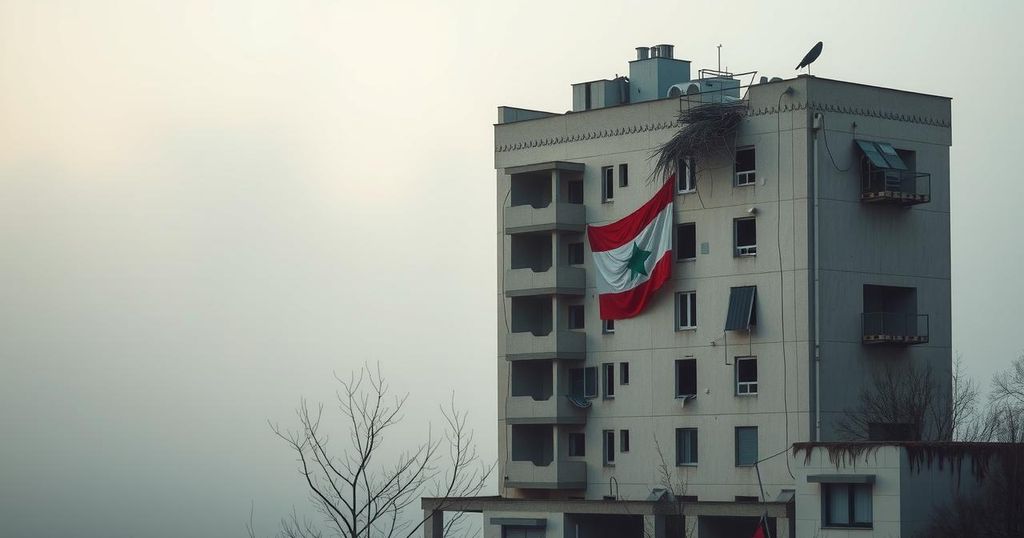Samir Geagea: Hezbollah’s Weapons Are Lebanon’s Core Disaster and the Diaspora Vote Must Be Rescued

- Samir Geagea criticizes Hezbollah’s weapons as unconstitutional and detrimental to Lebanon.
- He argues there cannot be a real state until Hezbollah disarms its arms.
- Geagea seeks full voting rights for the Lebanese diaspora, not just limited seats.
- He labels Speaker Berri’s management of parliamentary sessions as deceptive.
- Geagea remains resolute against threats from Hezbollah and Amal regarding government withdrawal.
Geagea Critiques Hezbollah’s Armament Situation and Calls for Action
In an extensive interview, Lebanese Forces leader Samir Geagea pulls no punches regarding Hezbollah’s arsenal, asserting that it is at the core of Lebanon’s current political and economic crisis. He indicates that Hezbollah’s weapons have never been sanctioned by Lebanon’s 1989 Taif Agreement, pushing Lebanon beyond its previous status as the “Switzerland of the East” to an area characterized by lawlessness and smuggling. Geagea firmly argues that these weapons violate both national unity and the existing constitution, reflecting a situation where Hezbollah aligns itself with corrupt factions merely to safeguard its armaments.
Disarmament and Internal State Challenges Discussed
Geagea’s belief is that without disarmament, a real state cannot exist in Lebanon. He recalls his own incarceration in 1994 for raising concerns about Hezbollah’s arms, expressing frustration with the historical support the group has received from the Syrian government. Moreover, he does not hold back in his critique of Hezbollah’s rhetoric about resilience, stating that instead of maintaining a balance, these weapons only provoke hostility from abroad. To this, he responds to statements made by Hezbollah officials with skepticism, highlighting the disturbing paradox where despite ceasefire claims, Hezbollah’s armament continues to attract threats from Israel.
Voting Rights for Expatriates Examined and Criticized
The dialogue shifts to the thorny subject of Lebanese expatriate voting rights, where Geagea stresses the dire need for reform of the obsolete 1960 electoral law. This situation became particularly complicated after the election of Michel Aoun, resulting in what Geagea describes as a fatal compromise when only six seats were allocated for the diaspora. He contends that this limited representation undermines the political influence of expatriates and insists that they should be allowed to vote for all 128 parliamentary positions. In a bid to reinforce his point on the diaspora’s essential role in Lebanese politics, he calls for a national poll to gauge their wishes directly and dismisses the current compromise as nonsensical.
Management of Parliamentary Sessions Criticized for Lack of Transparency
As for parliamentary session management, Geagea takes a firm stance against Speaker Nabih Berri, accusing him of conducting deceitful sessions by fast-tracking laws while neglecting necessary discussions about the amendment to Article 112, which limits diaspora voting. He points out that there is overwhelming support for this amendment among MPs, yet Berri continues to block reforms. Geagea maintains that should the Shiite duo of Hezbollah and Amal threaten to withdraw their support from the government, they would inevitably have to consider that such a move might endanger their own position and the overall welfare of Lebanon. He seems unmoved by such threats, asserting that the importance of supporting Lebanon’s interests within the government outweighs the risks of exiting.
In conclusion, Samir Geagea’s interview highlighted significant national concerns, primarily focusing on the dominance of Hezbollah’s armaments in Lebanon’s political dynamic and the urgent need for diaspora voting reform. His critique of Hezbollah reflects deep frustrations, stating that without disarmament, the hope of a cohesive and sovereign state remains tenuous. Additionally, his advocacy for expatriate representation sheds light on an ongoing struggle for inclusivity in Lebanon’s political landscape, rounding off with a pointed criticism of current parliamentary practices that he believes undermine true progress.








